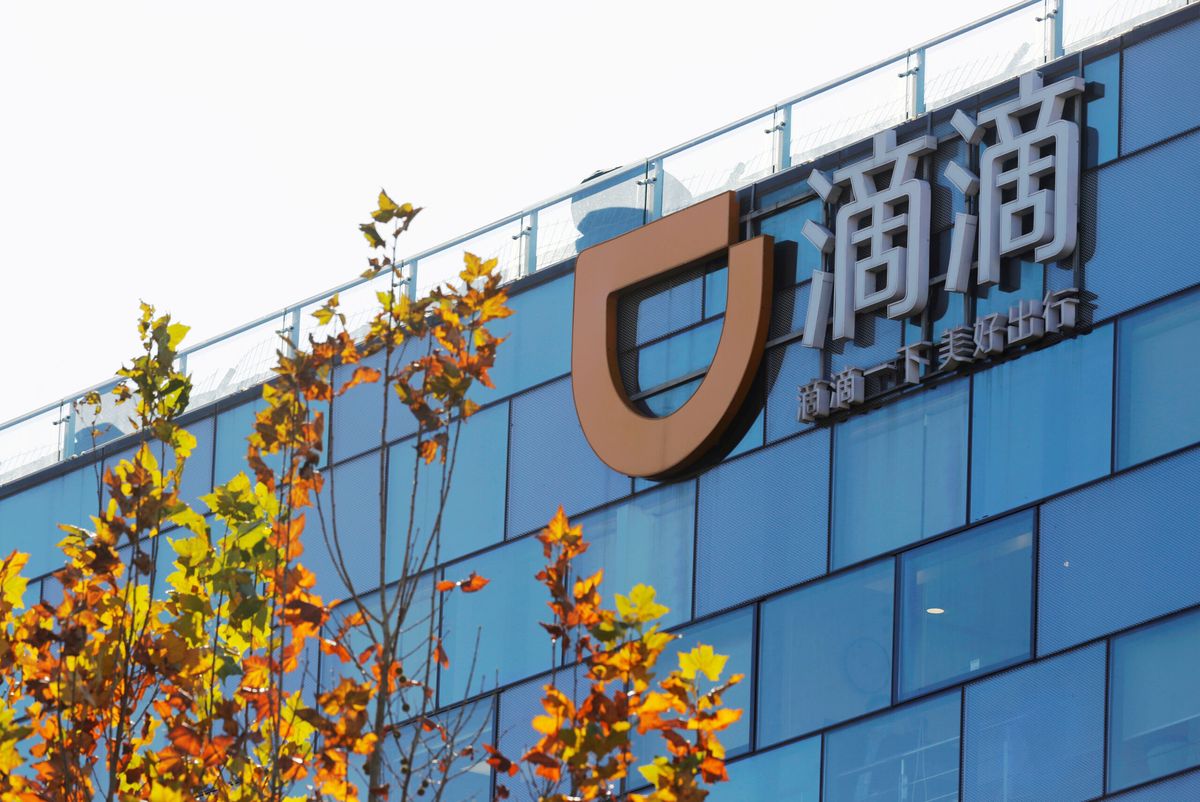Didi, China’s Uber, plans for an IPO of over US$60 billion

A few minutes every morning is all you need.
Stay up to date on the world's Headlines and Human Stories. It's fun, it's factual, it's fluff-free.
Didi is looking for capital to expand its expansion into online commerce and finance a significant European venture. As a result, the company will likely see itself up against Uber and others.
Didi Chuxing, China’s prominent ride-sharing company, is hastening its plans for an initial public offering (IPO) that will kick off as early as next quarter with those familiar with the plan stating that the company intends to capitalize on the post-pandemic turnaround.
Didi is the most prominent investment in SoftBank Group Corporation’s portfolio and is targeting a valuation that falls above the US$62 billion it secured during its last funding round. An IPO for the Chinese ride-hailing powerhouse could raise over US$9 billion, making it one of the world’s biggest tech IPOs for 2021 and boosting the company’s appraisal above the US$62 billion mark.
SoftBank Group currently owns about a 20% stake in Didi, making it Didi’s single most substantial investor. At a US$60 billion valuation, the stake would be worth about US$12 billion.
Established in 2012, Didi has since raised billions of investment dollars from top shareholders such as Alibaba and Softbank.
After a security incident in 2018 that left a female passenger dead after a driver raped and murdered her, Didi saw a drastic decline in its overall growth and expansion. After a year of regrouping and restrategizing, Didi is confident in its growth for 2021 and beyond.
In the second quarter, Didi began generating robust earnings, generating interest among investors looking to cash in. Now, though, because of rising Sino-American tensions, Didi plans to list in Hong Kong instead of New York. This comes as many Chinese companies listed in the United States have faced heightened criticism and more stringent audit requirements amid US-China tensions. One prominent example is TikTok’s owner ByteDance Ltd.
An IPO for Didi would cap an extraordinary turnaround after the company was formerly on the edge of collapse due to a number of external factors, including COVID-19. Now, though, the company expects to elicit the same investor excitement that has driven recent tech debuts, including those of China’s Kuaishou Technology and South Korea’s e-commerce pioneer Coupang Corp.
Didi’s president Jean Liu said last year that the company’s core business had already begun taking significant strides toward accumulating profit. Daily rides and accumulated revenue have exceeded pre-pandemic levels and are now at a record high.
Didi is currently looking for capital to expand its expansion into online commerce and finance a significant European venture. As a result, the company will likely see itself up against Uber.
Didi remains the predominant player on the mainland, notwithstanding opposition from the likes of Dida Inc.
Currently, Didi’s stock is selling in the secondary market at approximately US$43 to US$49, which is just below the US$51 that SoftBank bought in at before the government probe.
Partly because Tencent Holdings Ltd. supports it, Didi now functions in about fourteen countries outside its home base, mainly in Latin America.
In August of last year, the company began offering car-hailing services in Russia, marking its first direct foray into Europe. It is now an investor in an Estonia-based company called Bolt Technology OU, the continent’s main rival to Uber. Didi would also likely be facing competition from similar apps, such as Ola, Gett Inc and BlaBlaCar.
Didi’s debut would also hand another victory to SoftBank and its founder Masayoshi Son, who has profited from many other high-profile debuts in recent months, including those of Coupang and DoorDash Inc.
The Japanese billionaire established ride-hailing as the foundation of his startup portfolio, investing more than US$20 billion in Uber, Didi, Southeast Asia’s Grab and India’s Ola. Son, who has drawn massive critique for investment ventures like WeWork, has benefited from the market’s improvement and is riding a wave of IPOs from his portfolio. Still to come may be the mainland’s social media giant ByteDance, valued at an estimated US$180 billion, and Indonesia’s Tokopedia.
Uber, where SoftBank remains the most prominent stockholder, illustrates how investor sentiment has evolved over the past year. Although Uber saw its shares plunge at the beginning of last year, they have since surged in several ways as the economy begins to show signs of an economic recovery.
Have a tip or story? Get in touch with our reporters at tips@themilsource.com




Comments ()